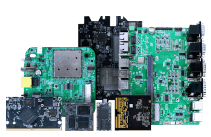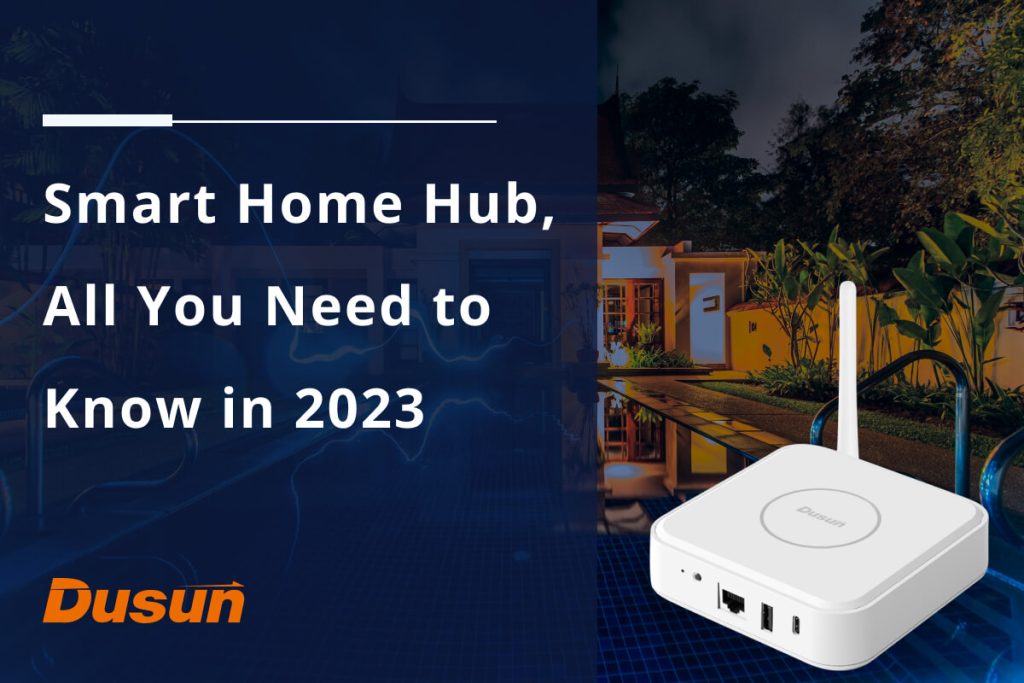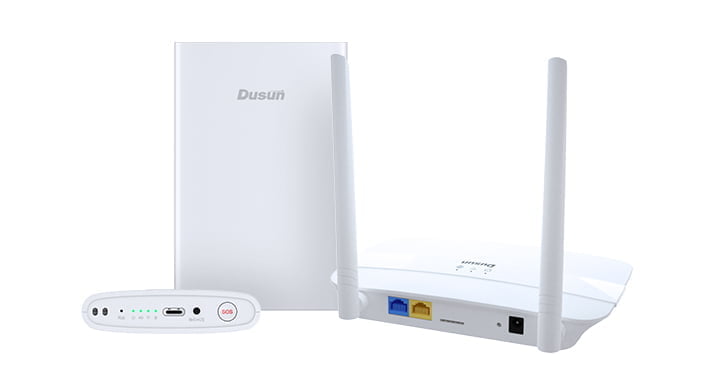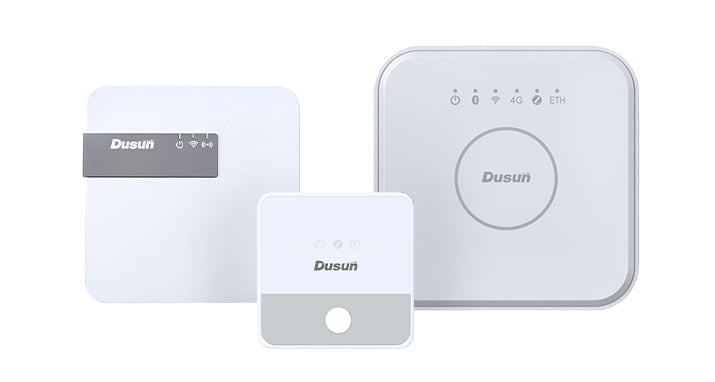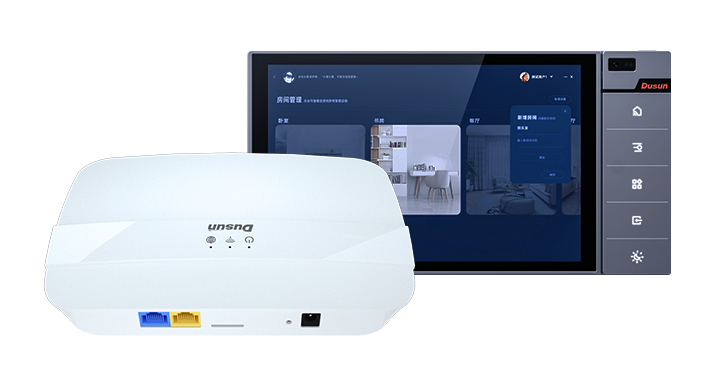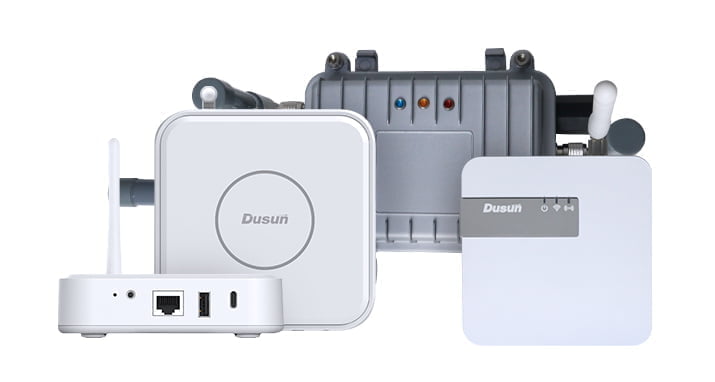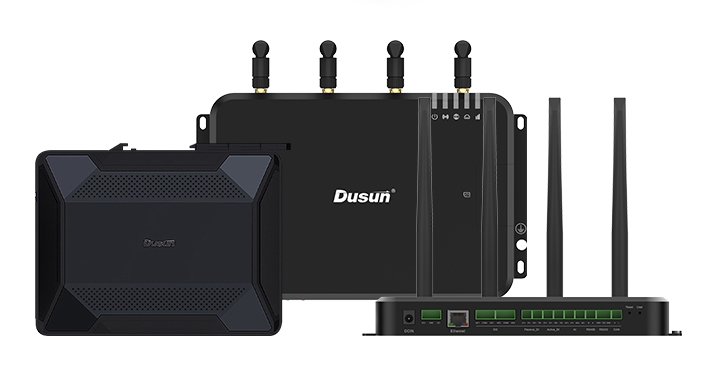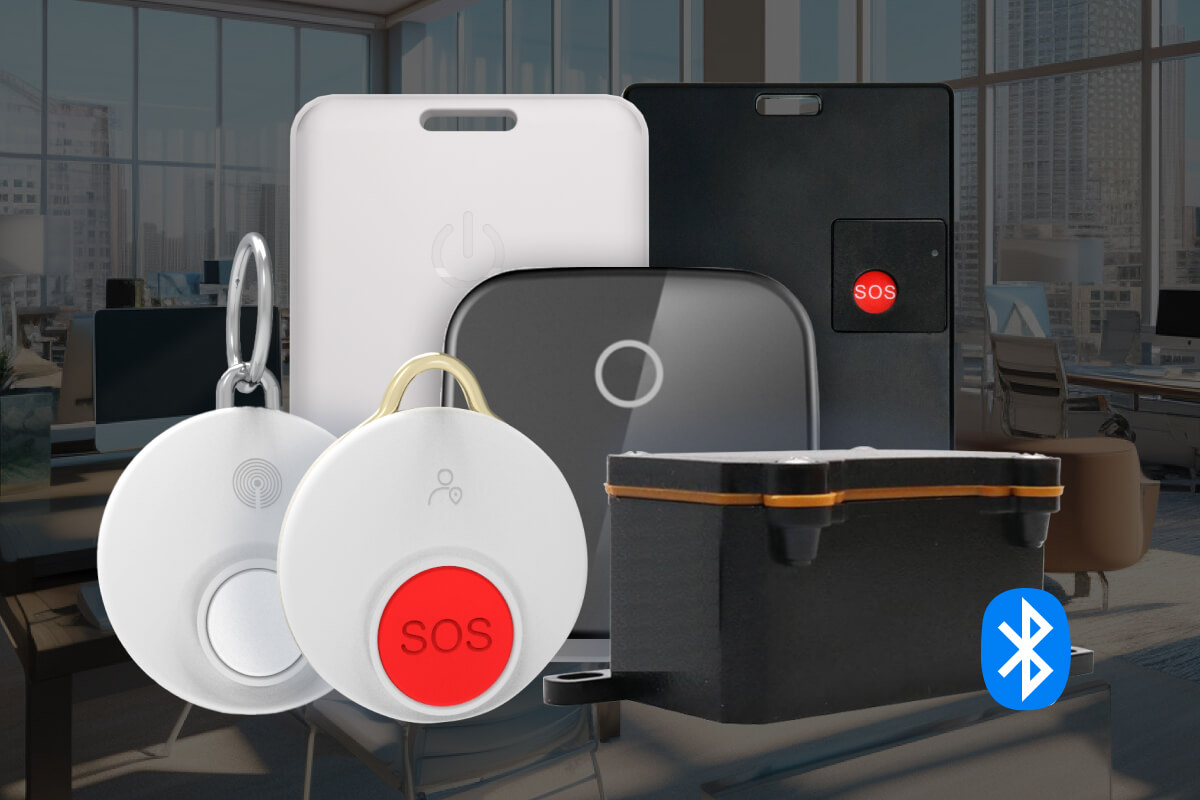Imagine configuring a command that turns on the air conditioning system before you arrive, triggers the garage door to open, illuminates the house, and plays classical music as the owner reaches home—all made possible with the smart home hub.
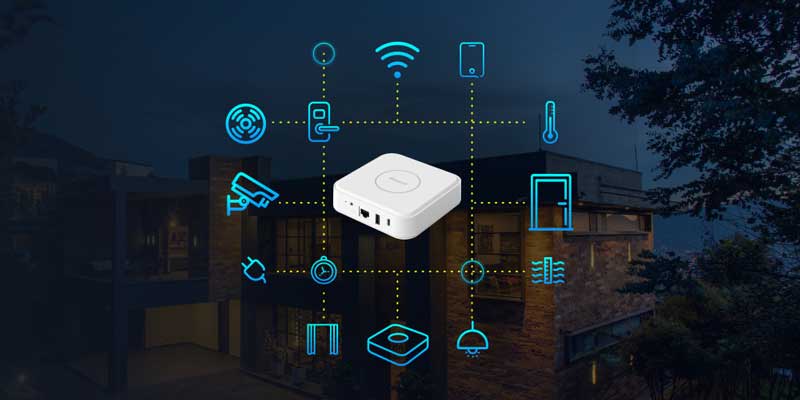
The article provides a unique perspective on smart home hubs, focusing on their relevance and potential for enterprises. Dusun IoT, a leading manufacturer, brings an insider’s insight to explore the complex workings of smart home hubs and their role in the evolving landscape of smart home automation.
Smart Home Protocols to Facilitate Device Communication
Protocols facilitate the transmission of signals between smart home devices to communicate and initiate actions such as controlling the lighting system. Smart home devices must connect to the same network as their central home automation hub for proper operation. The most common smart home protocols are:
Zigbee
Zigbee 3.0 is a widely adopted standard that promotes interoperability among different Zigbee devices. It allows manufacturers to create home hubs that support a wide range of Zigbee devices, enhancing user experience.
Read further: What is Zigbee? and Best Zigbee Gateway Hub
Z-Wave
Z-Wave 700 is the latest version of the Z-Wave protocol. It shows improved performance, longer range, and extended battery life compared to previous versions. Enterprises can consider integrating Z-Wave 700 or Plus support into their smart home hubs for users who prefer Z-Wave devices.
Read further: What is Z-Wave Home Automation and Best Z-Wave Hub
Zigbee vs. Z-Wave: Zigbee typically offers broader compatibility with various devices, while Z-Wave often possesses better signal reliability and less interference. Enterprises can capitalize on this by developing smart home hubs that support Zigbee and Z-Wave devices, allowing customers to mix and match devices from different ecosystems.
Read further: Zigbee vs Z-Wave, which one is better for smart home
Bluetooth
Bluetooth is getting popular for smart home gadgets because of its availability in smartphones and other consumer electronics. Bluetooth-enabled devices often do not require a home hub, as they can connect directly to smartphones or act as smart hubs. However, for certain use cases where centralized control and automation are desired, multi-protocol smart home hubs can also include Bluetooth support. It allows customers to integrate their Bluetooth smart home gadgets into a larger ecosystem alongside other protocols like Zigbee and Z-Wave.
Read further: What is a Bluetooth Gateway?
Wi-Fi
WiFi is now part and parcel of our daily lives. Many smart home devices utilize WiFi for easy connectivity and cloud-based control. Although WiFi does not require a hub for individual device control, enterprises can include WiFi support in their multi-protocol smart home hubs to offer a comprehensive solution that covers a wide range of devices.
Read further: Best WiFi module for IoT
Home Automation Platforms
The home automation platforms act as the central control software for your smart hubs, providing you with an interactive user interface to monitor and control all your devices. It empowers you to set up automation, scenes, routines, and schedules, granting full control over your smart home ecosystem.
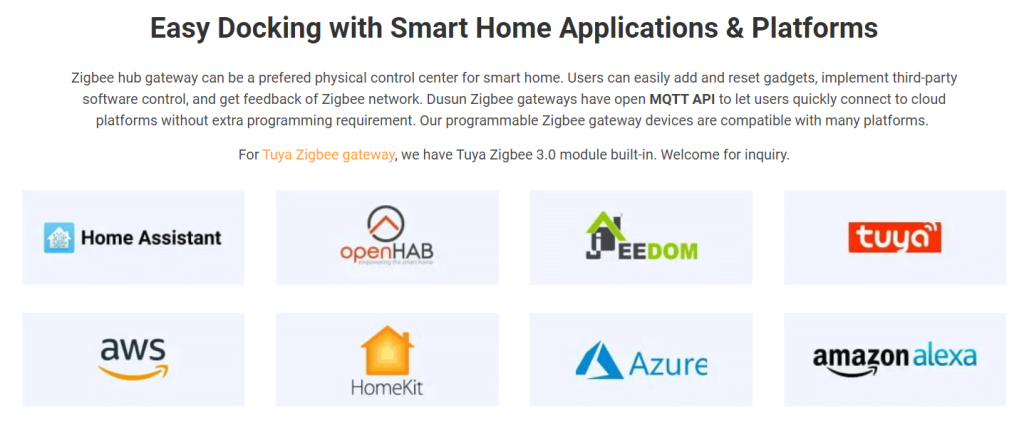
Selecting the right home automation system is crucial as it determines your smart home’s overall look and functionality. The following is a list of some popular smart home platforms of 2023.
- Home Assistant
- SmartThings
- Tuya Smart
- Apple HomeKit
- Google Assistant
- Amazon Alexa
- Hubitat Elevation
- Wink
- OpenHAB
- Homebridge
Read further: Best Home Automation System
Locally Controlled Hubs vs. Cloud-Managed Hubs
The decision between a locally controlled and cloud-managed home hub depends on individual preferences and specific use cases. Users prioritizing privacy, security, and local control may prefer locally controlled smart hubs. On the other hand, those seeking convenience, remote access, and scalability may opt for cloud-managed hubs. Hybrid solutions that combine both approaches may also be viable, offering the best of both worlds. A brief comparative analysis of local smart home hubs and cloud-based home automation hubs follows.
| Aspect | Locally Controlled Hub | Cloud-Managed Hub |
| Privacy and Security | Higher privacy and security due to local data processing and storage. | Data is stored and processed on cloud servers, potentially raising security and privacy concerns. |
| Reliability | More reliable as it operates independently of cloud services and internet connectivity. | Reliability is dependent on internet connection and cloud service uptime. Susceptible to internet outages. |
| Latency | Lower latency as data processing occurs locally without communicating with remote servers. | Higher latency due to data communication with cloud servers leads to potential response time delays. |
| Customization | Greater customization options as users can implement specific features according to their preferences. | Limited customization options, with features typically pre-defined by the cloud provider. |
| Remote Access | Limited remote access options often require users to be within the local network for control. | It provides convenient remote access, allowing users to control devices from anywhere with internet connectivity. |
| Scalability | Limited scalability based on local hardware limitations. Expanding the ecosystem may require hardware upgrades. | It offers greater scalability as cloud services can handle many devices without hardware constraints. |
| Updates | It requires manual updates. Users must manage firmware upgrades and security patches. | Automatic updates ensure access to the latest features and security enhancements. |
| Data Backup and Recovery | Users are responsible for data backup and recovery. | Cloud platforms typically offer data backup and recovery services, adding an extra layer of protection. |
| Dependency on Internet | Less reliant on internet connectivity, as core functions operate locally. | Fully dependent on internet connectivity for most functionalities, subject to internet outages. |
| Cost Consideration | Generally, it requires upfront hardware investment and manual maintenance. | The lower upfront investment, with ongoing subscription fees for cloud services. |
Smart Home Hub Development
Smart home hub development involves creating a centralized control and communication system that seamlessly integrates with various smart devices and protocols, enabling users to manage and automate their smart home ecosystem. The development process includes hardware selection, firmware programming, cloud connectivity, user interface design, security implementation, and integration with popular smart home platforms. This results in a feature-rich, user-friendly, and best smart home hub that enhances the overall experience.
Why develop a smart home hub?
Developing a smart home hub allows businesses to enter a growing market, provide enhanced user experiences, and create a unique brand identity. Custom wireless technology solutions, such as custom routers or smart home hubs, are becoming popular for organizations looking to transform their businesses with wireless technology and IoT deployments.
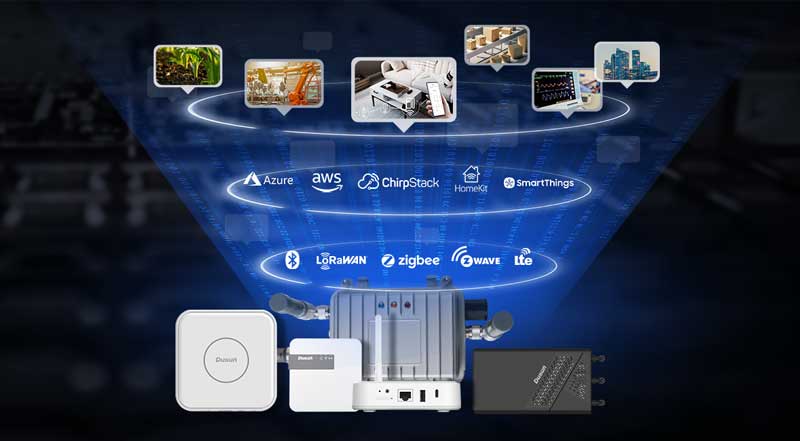
Custom solutions are particularly attractive when organizations have unique requirements, specific regulatory needs, extended product lifecycles, or a desire for full control and competitive advantage. IoT solution providers shall prefer custom smart home hubs over generic hubs for the following key factors.
Regulatory Compliance
Highly regulated industries like medical applications may require custom solutions to meet specific regulatory standards, like the IEC 60601 standard for medical devices.
Extended Lifecycle
Certain industries, like medical devices, need products with a longer lifecycle. Custom routers or gateways can be designed for extended product life spans, especially when using System on Modules (SOMs).
Full Control
Organizations may opt for custom solutions to have complete control over product design and intellectual property, allowing them to tailor the product to their needs.
Competitive Advantage
Custom niche products with unique properties can offer organizations a competitive edge in the market, such as customized indicators, data speed, edge computing, wireless protocol flexibility, and more.
Is it a good option to use Raspberry Pi to develop a smart home hub?
Using a Raspberry Pi to develop a smart home hub can be a good option, especially during development. Raspberry Pi offers a series of single-board computers popular among electronics enthusiasts and developers. Some of its advantages are:
- Learning and Prototyping: Raspberry Pi facilitates smart home hub experimentation and learning, enabling hands-on experience in building smart home systems.
- Flexibility: Raspberry Pi’s open-source nature allows customization with sensors, actuators, and communication protocols for tailored smart home hubs.
- Low Cost: Raspberry Pi boards offer affordability, making them cost-effective for developers and small-scale projects.
- Vast Community and Resources: The extensive Raspberry Pi community provides abundant online resources, tutorials, and support to assist developers in addressing challenges.
However, using the Raspberry PI gateway throughout the product’s development stage is quite handy. However, the productization step has a tremendous amount of effort. The productization stage requires the following three stages: mechanical and ID design for mass manufacture, PCB board redesign for mass manufacture, and application for certification, which will result in significant investment in productized design.
Read further: Is Raspberry Pi an IoT Gateway?
Dedicated Smart Home Hubs
Smart Home Hubs are central control devices that simplify the user experience and provide a single platform for managing and controlling smart home systems from different manufacturers and communication protocols. A dedicated smart home hub is a specialized device for one particular application. A few examples are given below.
Light switch hub
A smart switch hub is designed to control and manage smart light switches and bulbs. It allows users to remotely turn lights on/off, adjust brightness, and create automated lighting schedules. Commonly used protocols for light switch hubs include Zigbee, Z-Wave, and Wi-Fi.
Thermostat hub
A thermostat hub centralizes control of smart thermostats. It enables users to remotely set and adjust heating and cooling schedules, monitor temperature, and create energy-efficient automation. Smart hub thermostats typically utilize protocols like Zigbee, Z-Wave, and Wi-Fi.
Smart blinds hub
A smart blinds hub is a dedicated hub that integrates and controls smart blinds. It allows users to open remotely or close blinds, set timers for automated adjustments, and manage natural light and privacy. Such smart motion blind hubs often use communication protocols such as Zigbee, Z-Wave, and Bluetooth.
Things to Consider When Selecting the Best Smart Home Hub
Selection of the best smart home hub is a crucial task. Therefore, it is recommended to consider the following key factors in this process.
- CPU: Select low-energy consumption and high-efficiency computing processor to ensure smooth and reliable performance.
- Operating System: Choose a hub that supports popular OSs like Linux, OpenWrt, Ubuntu, Debian, or Android for flexibility and compatibility with various applications. The smart hub must also be compatible with the mobile device’s operating system, whether iOS or Android.
- Smart Home App: Check if the home hub offers a user-friendly smartphone app for convenient control and management of your smart home devices. Some smart hubs may also provide PC or Mac compatibility for additional flexibility.
- Voice Control: Check if the home hub integrates with your smart speaker (e.g., Amazon Alexa or Google Home) for convenient voice control of your smart home system.
- Programmability: Ensure the home hub allows full control over the hardware, enabling you to write custom automation rules and not rely solely on third-party solutions.
- Firmware Redevelopment and Assistance: Look for smart hubs offering firmware redevelopment options and providing technical support to customize the device for your needs.
- Firmware OTA (Over-the-Air): A home hub with OTA capability enables remote firmware updates, enhancing security and ensuring the latest features are accessible.
- Multi-connectivity: Ensure the smart home hub supports various communication protocols, such as RJ45 (Ethernet), Wi-Fi (2.4G/5G), LTE 4G, BLE, Zigbee, Z-Wave, and Matter, for seamless integration with different smart devices from multiple manufacturers.
- Enclosure Design: Consider an aesthetically pleasing enclosure design, as an attractive appearance appeals to customers, especially the younger generation.
- Customization Ability: Look for a smart home hub that allows customization, which will help differentiate your product and make it stand out in the market.
- User Experience: Choose a home automation hub with a user-friendly interface, reducing the need for extensive customer education and enhancing sales potential.
- Stability: Ensure the smart hub offers a stable RF signal, local control performance, and battery backup in case of power outages.
- Maximum Connected Devices: Cross-check the maximum number of devices the home hub can connect with your required number of devices.
- Other Ports: Consider additional ports like USB and HDMI for enhanced versatility and expandability.
- Matter Support: Verify if the smart hub supports Matter (formerly Project CHIP) for future interoperability with various smart home devices.
- Security: Look for built-in hardware encryption, such as ECC608, to ensure data security and protect against potential vulnerabilities.
- Future-Proof: Choose a home hub equipped to handle future updates and advancements in smart home technology.
- Certification: Prefer smart hubs that come with pre-certification, as it helps expedite the product’s time-to-market and ensures compliance with industry standards.
- FAE Technical Support: Ensure the manufacturer provides reliable technical support to address any issues promptly and efficiently.
Smart Home Hub Recommendation
A well-chosen smart home hub can elevate your living experience by bringing convenience and automation to every corner of your home. Here we recommend a few best smart home hubs.
Most affordable smart home hub: DSGW-030
If you’re looking for an affordable smart home hub, the DSGW-030 is an excellent recommendation. It supports the latest Bluetooth 5.2 and Zigbee 3.0 protocols. Its compact design makes it fit into any space effortlessly, making it suitable for multiple smart homes and IoT projects.
Programmability and easy integration with public and private clouds offer flexibility in developing custom home automation applications. With multiple API interfaces and SDK support, users can easily create firmware and automation rules, making it a reliable and customizable solution for smart home needs.
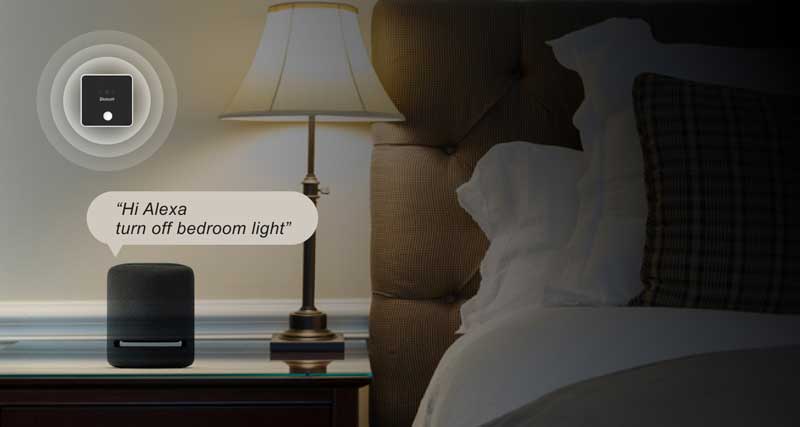
Smart home hub with ESP32: DSGW-092
The ESP32 SoCs are highly regarded for their excellent RF performance, making them reliable for wireless communication, and their ultra-low power consumption ensures energy efficiency. Being small and running on FreeRTOS, ESP32 makes development easy and seamless.
Developers can use the SDK Quick Start guide and API to quickly set up the home hub and create smart home automation applications. With its diverse capabilities and user-friendly features, the DSGW-092 ESP32 gateway is a popular choice for building smart home hubs.
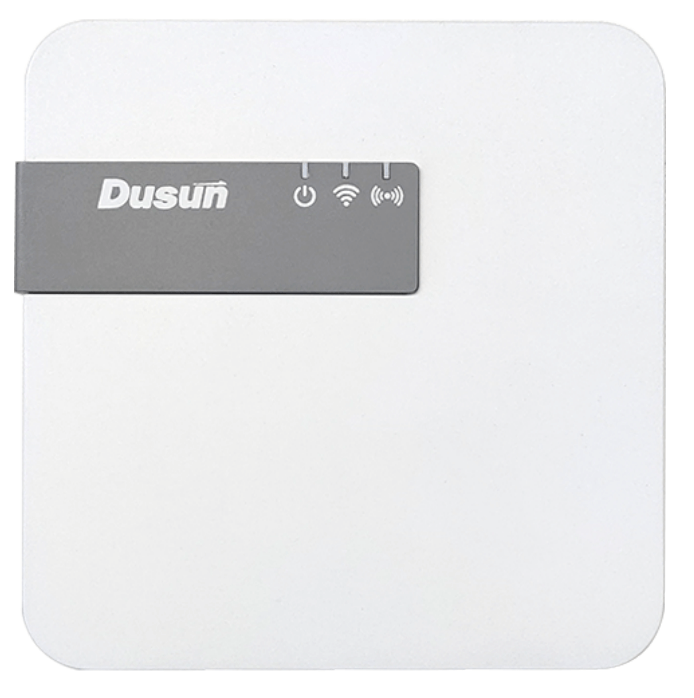
Most popular smart home hub: DSGW-210
The DSGW-210 is a popular and versatile smart home hub with a visually appealing design and powerful performance. Its advanced features make it suitable for various IoT applications, including smart home automation, building automation, and energy management.
With fully-documented development resources and support for self-owned and custom software applications, the DSGW-210 stands out as a top choice for IoT hardware developers seeking a robust and customizable solution. Jeedom, an IoT hardware solution provider, has utilized DSGW-210 in its top-of-the-line product Jeedom Luna and they claim it as their best smart home hub.
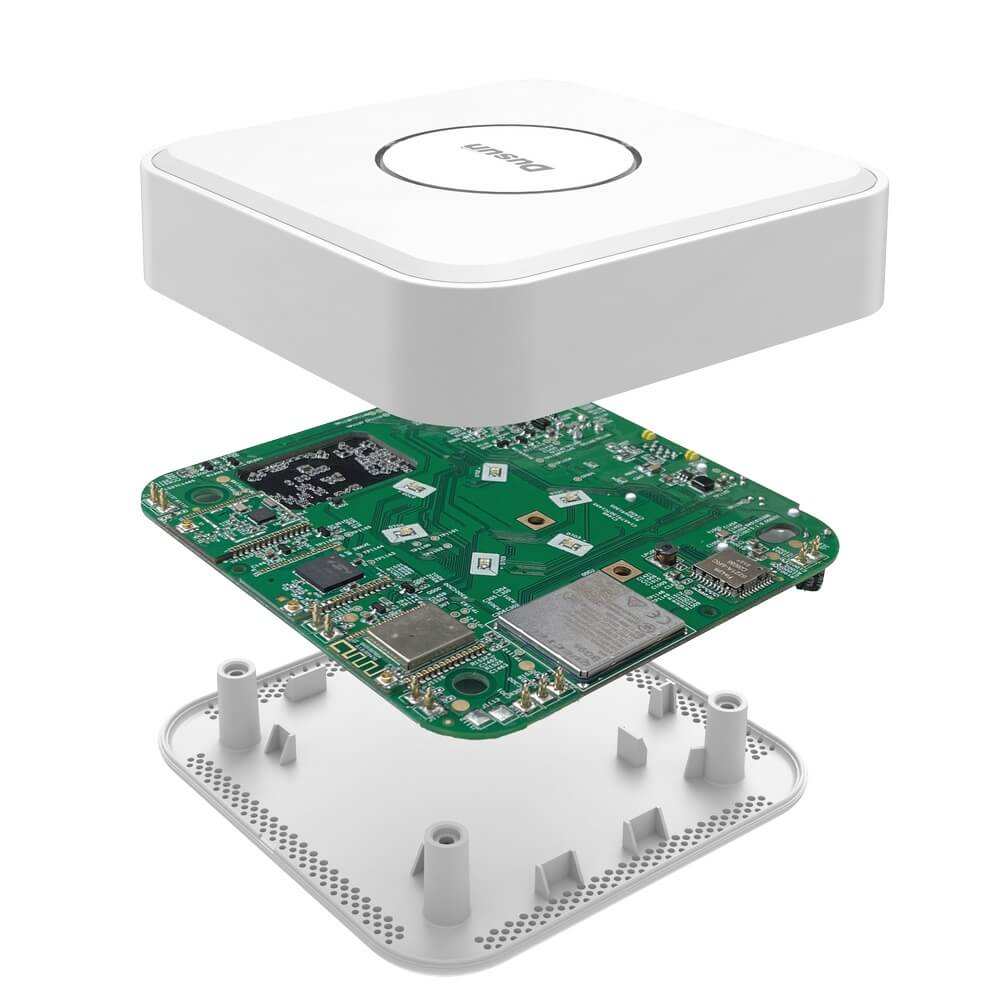
Touch screen smart home hub: DSGW-120
The DSGW-120 Smart Touch Panel Gateway is a feature-rich control panel designed to enhance the smart home experience. Powered by a PX30 Quad Core ARM Cortex-A35 processor, it offers seamless management and optimization of all connected devices from a single location.
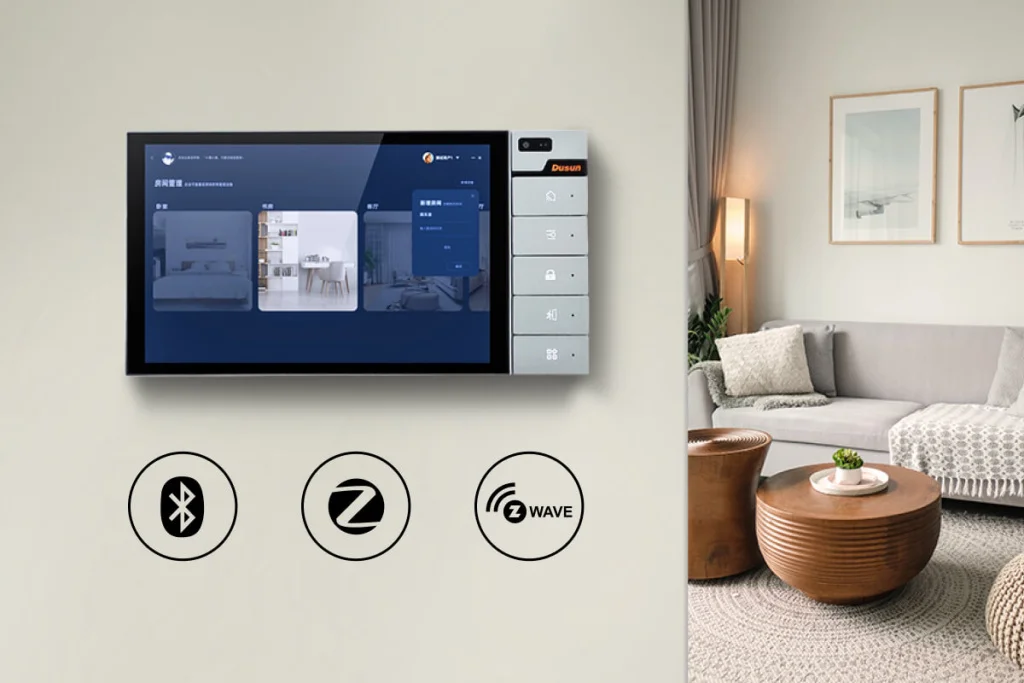
It provides convenient control options with support for multiple protocols like Zigbee and Z-Wave and a voice function. Its high programmability and comprehensive documentation allow for easy secondary development, enabling the creation of custom applications to meet specific needs. Ideal for IoT gateway developers, the DSGW-120 is a compelling and handy solution for smart home automation.
FAQs for Smart Home Hubs
Dedicated or universal home hub, how to choose the best smart home hub?
When selecting the best smart home hub, it’s essential to consider your specific needs and requirements. A dedicated home hub is purpose-built for a particular set of protocols and devices, offering optimal performance and integration within a specific ecosystem. On the other hand, a universal Zigbee gateway provides greater flexibility, supporting multiple protocols and allowing compatibility with a wide range of smart home devices from different manufacturers.
What is the importance of compatibility with Matter (formerly Project CHIP) in a smart home hub?
Matter is an open-source, unified connectivity standard backed by major industry players, designed to simplify smart home device communication. By supporting Matter, a smart home hub can offer users an integrated and standardized experience, enabling them to control and manage their smart devices more efficiently and effectively. Explore our Matter bridge gateway here.
How a smart home hub works?
A smart home hub works as a convergence point for data from various smart devices, forwarding it in different directions. The home hub determines how and where data is dispatched and may perform processing tasks before delivering the data. The smart home app, a universal remote, enables users to monitor and control all smart devices, automate tasks, and schedule actions.
Does the smart hub require internet?
No, not all smart hubs require internet connectivity to function. Some smart home hubs can operate locally within the home automation network, controlling devices and communicating with them without needing an internet connection. However, certain features and remote access capabilities may require internet connectivity to function fully.
A smart hub supports many interconnected devices?
Hubs can handle different numbers of devices, with some having limits ranging from a few dozen to several hundred. This limit includes devices directly connected to the hub and those connected through compatible protocols like Zigbee or Z-Wave.

